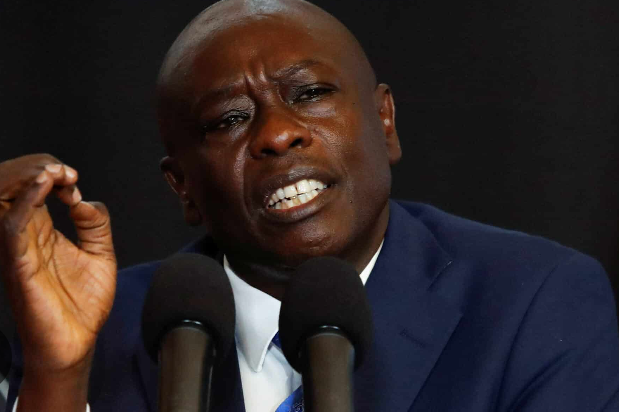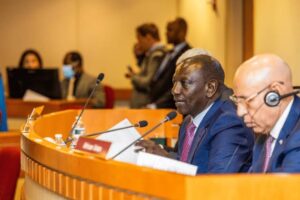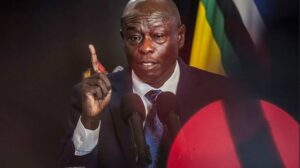Today, Rigathi Gachagua, who was recently impeached as Deputy President of Kenya, made shocking allegations that officers from the National Intelligence Service (NIS) attempted to poison him twice.
Gachagua revealed these details in a press conference, claiming that these assassination attempts were politically motivated, aimed at silencing him in the wake of his recent political downfall.
He said he narrowly escaped both incidents, emphasizing that the NIS had become part of a wider conspiracy against him, orchestrated by influential figures within the government.
Gachagua’s claims come amidst ongoing tension with key government officials, particularly with NIS Director General Noordin Haji.
Their relationship has been publicly strained for months, especially following Gachagua’s outspoken criticism of the intelligence agency’s handling of security matters.
Earlier this year, Gachagua accused the NIS of failing to provide President William Ruto with accurate intelligence ahead of the protests against the Finance Bill 2024.
He blamed the agency for allowing the unrest to escalate, leading to property damage and loss of lives.
During one press briefing, Gachagua accused Haji of sleeping on the job and demanded that he take full responsibility for the failures.
The former Deputy President also suggested that these assassination attempts were part of a broader plot to remove him from the political scene, citing his impeachment as further evidence of this scheme.
Gachagua’s impeachment, upheld by the Senate in October 2024, was driven by multiple allegations, including corruption, ethnic bias, and undermining governments agendas.
One of the charges was his controversial comments about “shareholding” in the government, which many saw as divisive and in violation of his oath to uphold national unity.
Gachagua, however, believes that the impeachment was orchestrated by political rivals who wanted to sideline him permanently.
His statements have sparked debate, with political analysts suggesting that Gachagua’s explosive claims may be part of a strategy to rebuild his political influence following his removal from office.
Despite his impeachment, Gachagua has remained vocal, positioning himself as a critic of the government’s handling of key issues, including the intelligence services.
Some observers see these claims as a tactic to regain public sympathy, while others worry that they may further polarize an already divided political ground.
The Kenyan political scene has seen increased tensions in recent months, particularly between Gachagua and President Ruto.
Their relationship deteriorated publicly, leading many to believe that Gachagua’s impeachment was influenced by the strained ties between the two leaders.
With the allegations of poisoning now out in the open, the former deputy president has once again thrust himself into the national spotlight, raising questions about the integrity of Kenya’s intelligence services and the extent of political maneuvering in the country’s corridors of power.





















Add Comment